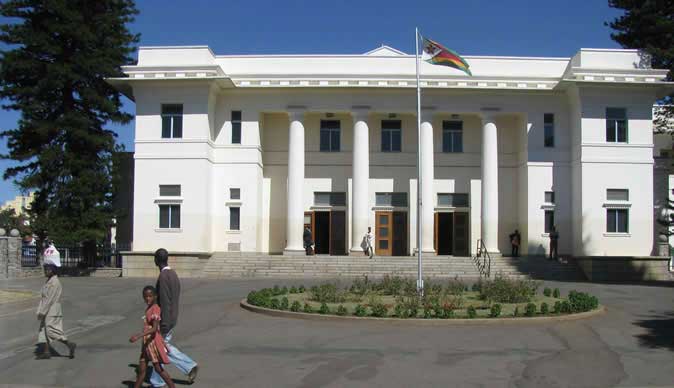
BY SILAS NKALA RESIDENTS have appealed to central government to give Bulawayo City Council (BCC) bulk water rights to alleviate the water crisis rocking the city.
Human rights groups, Better Bulawayo Initiative and Matabeleland Institute for Human Rights, which are gathering residents’ views through an online platform for onward transmission to the local authority and government, said ratepayers wanted council to construct more dams around the city.
BCC has intensified its water-rationing regime to 120 hours in an effort to save water until the next rainy season. The city’s dam levels have dropped to 31,09%.
Two supply dams, Upper Ncema and Umzingwane, have been decommissioned, while Lower Ncema is likely to be decommissioned this month.
Better Bulawayo Initiative spokesperson Jennifer Chiveya yesterday said they were lobbying the government to devolve bulk water rights to Bulawayo City Council so that the council can construct its own dams without seeking approval from central government or the Zimbabwe National Water Authority.
She said residents wanted council to attend to water leakages which were a perennial problem.
Chiveya said residents suggested that council should partner with the National University of Science and Technology to develop a mobile application that would be used to track and locate water leakages.
Residents also said increasing water extraction at Nyamandlovu Aquifer would help the situation.
- Chamisa under fire over US$120K donation
- Mavhunga puts DeMbare into Chibuku quarterfinals
- Pension funds bet on Cabora Bassa oilfields
- Councils defy govt fire tender directive
Keep Reading
“The residents suggested that the council must consider water harvesting techniques that are aimed at harnessing run-off water which is lost during the rainy season mainly due to tarmac surfaces.
This may also entail having bulk reservoirs or storage dams at the edge of the city, which run-off water will be diverted into,” she said.
“They appealed for a joint campaign effort (between BCC and residents) and this campaign effort should consider lessons from other arid areas that have managed to solve their water crises like Egypt, Botswana and Cape Town. They also asked for the resuscitation, deepening and drilling of more boreholes in the communities of Bulawayo. These boreholes can be solar powered and called for the promotion of reuse of water.”
According to submissions compiled by the two groups, residents called for campaigns and lobby for the revival of the Matabeleland Zambezi Water Project, scooping of current supply dams during the dry season and ensuring that siltation in the catchment areas is managed.
“Council should consider banning the 10-litre toilet cisterns and promote the use of 4-litre or 5-litres high pressure ones which are already being used in hotels. Council needs to also ban the large water taps and introduce smaller water taps that don’t discharge large amounts of water at a given time,” the residents’ contributions read.
“There must be construction of supply dams along Gwayi and Shangani rivers, exploration of more aquifers around the City of Bulawayo, including in Matobo district. Council should consider legal and human rights ways of compelling people to pay for their water bills. Enkwalini water needs to be harvested and sold for commercial purposes.”
The residents also said Khami Dam water should not be recycled for domestic use, but could be used for commercial, industrial and agricultural purposes.
“Moreover, if Khami water is sold for industrial, commercial and agricultural use, it can generate money that will help towards the construction of a new dam,” the residents submitted.
The submissions will be forwarded to council and central government for consideration.
Government recently allocated $10,6 million for the rehabilitation of Nyamandlovu boreholes as the city’s water supplies dwindle.











